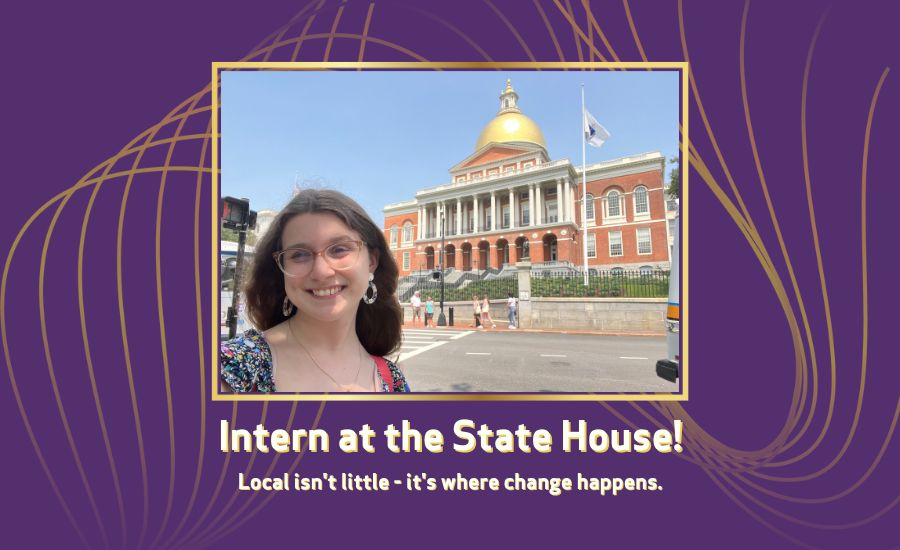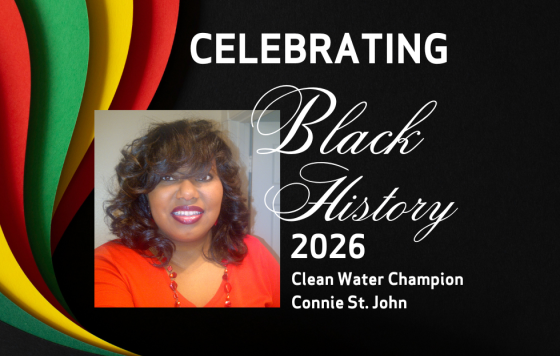
It is often said that “all politics is local.” For some, this means that local connections are the proper foundation for national political success. For me, this emphasizes the direct impact of local politics on how we live in our communities and overcome problems in them. My internship with Clean Water Action has taught me that campaigns with a local focus can often have the biggest impact on an individual’s life.
My name is Catherine Middelmann, Senior Political Communications student at Emerson College and Communications and Campaign Intern for Clean Water Action Massachusetts. I went into political communications because while I am not so naive to think that if we just ‘talk it out’ all of our problems will be solved, I do believe in the power of connection to move a cause forwards to success. Pairing this with the generational urge to push the climate fight into high gear led me to Clean Water Action.
The environmental fight feels very big, and it is. The incomprehensible bigness of it can make it difficult to see how you (an individual) can make an impact. But there are always local environmental efforts and struggles you can support that can have an immediate impact from standing with environmental justice communities fighting a polluting facility, to helping neighbors in your building access energy efficiency upgrades to their apartment.
Going into the Massachusetts State House has been a highlight of my internship so far. Sitting in on hearings allows me to learn more about our local campaigns and meet allies in the climate fight. Attending the Massachusetts Environmental Justice Table was another incredible experience, with Representative Madaro and Senator DiDomenico actually running in from their other duties to collaborate with Environment Justice (EJ) leaders for the passage of their siting bill, H3187/S2113.
Why does one meeting or one bill matter? The years-long fight to prevent a polluting substation from being constructed in East Boston is illustrative of a larger problem: EJ communities do not have enough power to stop polluting facilities from being built in their neighborhoods. H3187/S2113 requires a cumulative impact assessment and an EJ impact statement before the Energy Facilities Siting Board approves any electricity generating facility or oil, gas, or substation facility. It prohibits the approval of electricity generating facilities or substations if the EJ impact statement shows that they would result in public health or other harm to EJ populations. Events bringing the movement together, such as the EJ table, are the steps that will result in giving a voice to local communities, so they can advocate for and protect their health.
Hearing firsthand from the people who are doing this work makes me optimistic for a just climate future. These local actions and meetings are steps ahead on the journey to a cleaner, greener future. A healthy future should be a guarantee and a given for everyone, but because it isn’t, we work every day for people, action, and justice.


